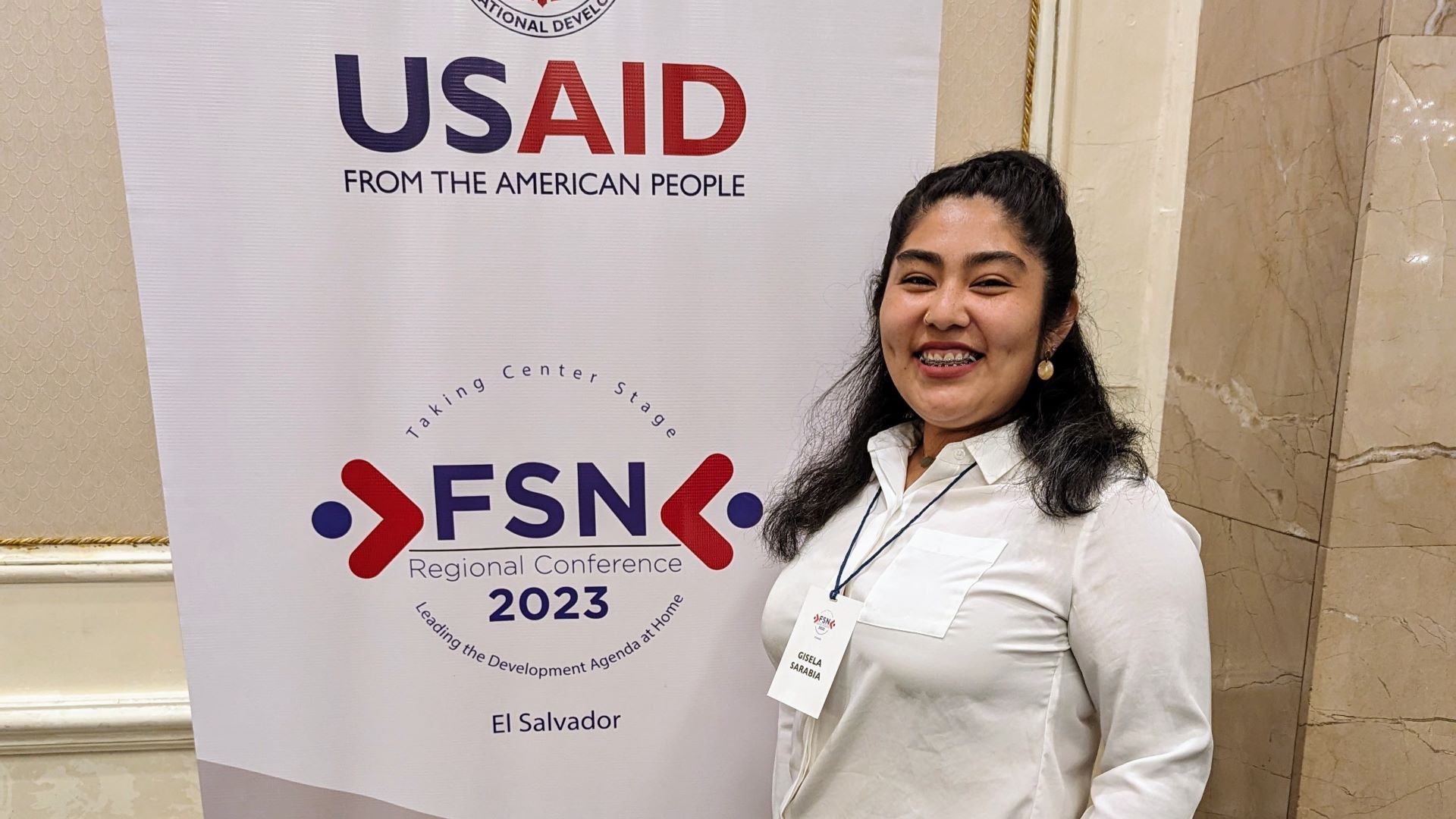Gisela Sarabia is a second-year dual degree MA/Ph.D. candidate pursuing her master's in Latin American & Caribbean Studies at the FIU Kimberly Green Latin American and Caribbean Center and her Ph.D. in International Relations. Gisela's master's degree focus is organized crime, migration, refugees, Mexico, and Central America. This fall (2023), she is writing her master's thesis on the influence of organized crime on governance in Mexico and Central America. Gisela's research interests include Latin America, democracy, migration, refugee policy, comparative studies, and social justice. She earned her BA in International Relations and minors in Latin American & Caribbean Studies; Chinese language and culture (2022) from Beloit College located in Beloit, Wisconsin. She is a former McNair Scholar (2022) and a PPIA Fellow (2021).
Please tell us about the main themes of the Conference (sponsor agency, participants, objectives, outcomes).
This August was the first regional conference in Latin America, and it was designed for Foreign Service Nationals (FSNs). FSNs are USAID contractors who work to operationalize the U.S. and national goals in a pre-determined country. The theme of the conference was "FSN empowerment" through the collaborative discussion of existing mechanisms, the creation of new mechanisms, and the knowledge-sharing of successful local projects. The main themes at the conference were"empowerment implementation plans;" locally-led development projects by FSNs and lessons learned; professional development workshops; the advancement of DEI initiatives, partnerships, and the operationalization of locally-led development; and steps for moving forward as an agency.
The objectives of the conference were to talk about the existing mechanisms of empowerment for FSNs and the areas that can be improved to strengthen the support from Washington DC for their employees abroad. The second objective was to provide professional development workshops. The third objective was to present to the FSNs about local partnerships with different educational and private institutions, such as USAID's long-term partnership with FIU as a Minority Serving Institution. The outcomes of the conference were the strengthened relations between FSNs, Washington, and partner institutions; tools and resources for FSNs; and clear and objective feedback for the Washington D.C. USAID office.
In reality, this conference felt like a space created for FSNs to discuss the challenges they faced in the field as an employee and citizen in their country of origin. It was also a space held for the knowledge-sharing of projects they have engaged with and to share successful strategies that can be applied elsewhere. For the last day of the conference, it was a professional development day. FSNs met with USAID partnering institutions of education, the private sector, and booth forums of USAID offices that can help enhance the work of FSNs. I had the pleasure of representing the Latin Americana and Caribbean Studies Center for FIU, along with the three other FIU departments (the Institute of Environment, the Jack D. Gordon Institute for Public Policy, and the Global Forensic and Justice Center).
What did you present on and how your research is tied to LACC and our mission in the region?
On the third day of the conference, I along with the three other FIU institutes (the Institute of the Environment, Global Forensic and Justice Center, Jack Gordon Institute for Public Policy, and the Latin American and Caribbean Center), presented on the partnerships that USAID has with our specific centers. I presented about the core elements of our educational and research programs, along with the current research projects I have and am engaging with. In the past, I have engaged in research on transnational migration, diasporas, democratic erosion, and China-Latin American relations. This fall, I am doing my MA thesis on the influence of organized crime on governance in Mexico and Central America. Furthermore, my research interests align with LACC's mission in the region by researching and exploring practical solutions for complex problems that LAC faces, such as migration and organized crime. My research also engages with an interdisciplinary approach, which involves LACC's mission for the application of a comprehensive approach and partnerships beyond academia, with policy-oriented institutions.
Can you identify three ways in which this Conference helped your academic career?
When I was first nominated for the conference, I did not really know what to expect because I was going to be the only graduate student in a room filled with active professionals. Although I was nervous, it was a rewarding experience because I met many FSNs from all over Latin America and the Caribbean. I learned about their personal journey to become an FSN, their rewards and challenges in the field, and their enthusiasm and commitment to making the world a better place. They truly were inspirational in academic and professional ways. With the help of Molly O'Halloran, DEIA Program Manager USAID-FIU, I learned networking techniques and earned confidence when meeting new people. Another lesson learned was the ways my research projects can be operationalized in the field of international development with USAID and other partner institutions focused on international development work. Lastly, the conference made me aware of the elements and mechanisms employed by governmental organizations like USAID, which has enhanced my understanding of the professional development opportunities I can engage with to be "career-ready" when graduating with my Ph.D.
